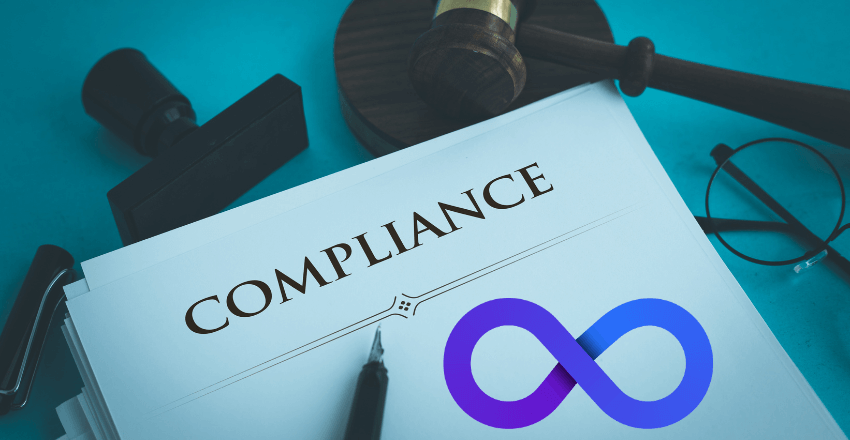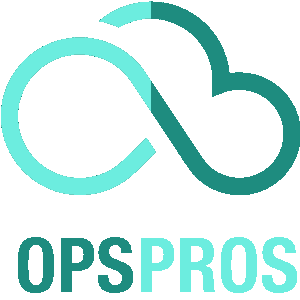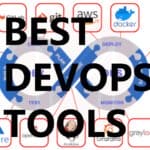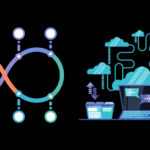 Welcome to the world of DevOps, where agility and speed are crucial for delivering high-quality software. However, as organizations adopt DevOps methodologies, they face the challenge of maintaining compliance with various regulatory requirements. In this article, we will explore the importance of DevOps compliance, its challenges, and best practices for achieving and maintaining compliance in your DevOps workflow.
Welcome to the world of DevOps, where agility and speed are crucial for delivering high-quality software. However, as organizations adopt DevOps methodologies, they face the challenge of maintaining compliance with various regulatory requirements. In this article, we will explore the importance of DevOps compliance, its challenges, and best practices for achieving and maintaining compliance in your DevOps workflow.
DevOps compliance is the process of adhering to regulatory standards and requirements while implementing DevOps practices. It involves ensuring that your software development process follows specific compliance regulations, such as GDPR, HIPAA, or PCI-DSS. By integrating compliance into your DevOps workflow, you can ensure that your organization is accountable and secure throughout the development lifecycle.
In the next section, we will delve deeper into regulatory compliance and its significance for organizations operating in various industries.
Understanding Regulatory Compliance
Regulatory compliance refers to the adherence to laws, regulations, and guidelines set by government bodies or industry-specific organizations. Compliance is mandatory for organizations that operate in fields such as healthcare, finance, and e-commerce, to name a few. Failure to comply with regulations can result in legal penalties, reputational damage, and loss of customer trust.
Common compliance standards and regulations that businesses need to comply with include the General Data Protection Regulation (GDPR) for data protection and privacy, Health Insurance Portability and Accountability Act (HIPAA) for healthcare data protection, Payment Card Industry Data Security Standard (PCI-DSS) for payment security, and many others.
Organizations must ensure that their operations comply with these regulations to protect sensitive data, maintain customer trust, and avoid costly legal repercussions. Failure to adhere to these regulations can also lead to negative publicity and reputational damage, which can be difficult to recover from.
The Role of DevOps in Achieving Compliance
DevOps practices have revolutionized software development by enabling organizations to deliver high-quality applications at a rapid pace. However, this fast-paced development environment can pose challenges for maintaining compliance with regulatory requirements. In this section, we will explore how DevOps can align with compliance requirements and the benefits of integrating compliance into the DevOps workflow.
DevOps and Compliance
DevOps involves collaboration among different teams to develop, test, and deploy applications. Compliance requirements mandate that applications comply with regulatory standards. Historically, compliance was viewed as a constraint to the development process, adding more bureaucracy to an already lengthy process.
However, DevOps practices can integrate compliance as an integral part of the development process. By incorporating compliance requirements into the development process, DevOps can ensure that applications are secure and compliant throughout the development lifecycle.
Benefits of Integrating Compliance
Integrating compliance into DevOps can bring several benefits:
- Increased security: Integrating security and compliance checks into the development process can ensure that security vulnerabilities are identified and addressed early in the development lifecycle.
- Better risk management: DevOps can automate risk assessments to identify potential compliance risks and take corrective actions.
- Improved accountability: Compliance requirements can be incorporated into the DevOps workflow to ensure that developers are held accountable for compliance.
By implementing these benefits, DevOps can ensure that applications meet regulatory requirements and minimize the risk of non-compliance.
Implementing Compliance as Code
Compliance as Code is a key principle of DevOps that allows organizations to integrate compliance requirements into the software development lifecycle. By defining compliance policies as code, teams can automate the enforcement of these policies and ensure that all code modifications align with regulatory standards.
One key benefit of Compliance as Code is that it enables organizations to identify compliance issues early on in the development process, reducing the risk of costly compliance violations down the line. By integrating compliance checks into the Continuous Integration/Continuous Deployment (CI/CD) pipeline, teams can identify and remediate compliance issues in real-time, preventing delays in production and improving overall efficiency.
| Code Sample | Description |
|---|---|
| function validatePciDss() { if(creditCardDataStored) { console.log(“PCI DSS violation detected”); throw new Error(“PCI DSS violation detected”); } } | This code sample demonstrates how to implement a PCI-DSS compliance check within a JavaScript function. If credit card data is being stored, the function will produce a console log and throw an error, preventing the code from executing. |
Compliance as Code can also help teams maintain consistency across their DevOps pipeline, ensuring that all team members are on the same page when it comes to regulatory compliance. By defining compliance policies as code, teams can reduce the risk of human error and ensure that all code modifications adhere to the same set of compliance standards.
Implementing Compliance as Code Best Practices
- Define compliance policies as code and integrate them into the CI/CD pipeline
- Perform regular compliance checks throughout the development lifecycle
- Automate compliance enforcement to reduce the risk of errors and violations
- Use risk-based assessments to prioritize compliance efforts
By following these best practices, organizations can ensure that their DevOps pipeline is aligned with regulatory compliance requirements, reducing the risk of costly compliance violations and boosting overall efficiency.
DevOps Tools for Compliance Management
Ensuring compliance in DevOps requires the use of specialized tools and technologies that can help organizations automate and manage compliance-related tasks. These tools can help streamline compliance processes and provide continuous monitoring to ensure compliance throughout the development lifecycle.
1. GitLab
GitLab is a popular DevOps platform that offers a range of features for managing compliance in DevOps pipelines. It provides built-in support for compliance scanning and tracking, allowing teams to monitor compliance policies throughout development. GitLab also supports compliance as code, enabling teams to automate compliance checks and enforcement as part of the development process.
2. Chef Compliance
Chef Compliance is a tool that helps organizations automate compliance checks and audits in their DevOps workflows. It provides a library of compliance profiles that can be used to scan infrastructure and code for compliance issues. Chef Compliance also enables teams to create custom compliance policies and monitor compliance status in real-time.
3. Sonatype Nexus Lifecycle
Sonatype Nexus Lifecycle is a tool that helps organizations manage open source components and ensure compliance with industry regulations. It provides a comprehensive database of open source components and their associated security and compliance risks, enabling teams to quickly identify and remediate compliance issues.
4. JFrog Xray
JFrog Xray is a DevOps tool that provides comprehensive security and compliance scanning for software artifacts. It enables teams to identify security vulnerabilities and compliance issues in their components and dependencies, providing real-time feedback on compliance status. JFrog Xray also supports compliance as code, enabling teams to automate compliance checks and enforcement in their pipelines.
By leveraging these and other DevOps tools, organizations can streamline compliance processes and ensure continuous monitoring of compliance status throughout the development lifecycle. This can help reduce the risk of compliance violations and improve security while ensuring accountability across the DevOps pipeline.
The Role of DevOps in Achieving Compliance
DevOps practices have revolutionized software development, enabling teams to deliver high-quality applications more efficiently than ever before. However, with this newfound speed and agility comes the challenge of maintaining compliance with regulatory requirements.
Compliance is essential for organizations to avoid penalties, protect sensitive data, and maintain customer trust. But how can DevOps teams ensure compliance while keeping up with the fast-paced demands of modern software development?
The answer lies in integrating compliance into the DevOps workflow. By leveraging DevOps practices and tools, organizations can achieve compliance more effectively and efficiently than ever before. Let’s explore how DevOps can help achieve compliance:
The Benefits of Integrating Compliance into DevOps
Integrating compliance into the DevOps workflow offers many benefits, including:
- Improved security: By building compliance checks into the development pipeline, organizations can identify and address security vulnerabilities early on.
- Increased efficiency: Compliance becomes an integral part of the development process, reducing the need for manual checks and audits.
- Better collaboration: By involving compliance teams early on in the development process, DevOps teams can ensure that compliance requirements are met from the outset.
- Enhanced accountability: By making compliance a shared responsibility across DevOps teams, everyone is accountable for ensuring compliance and identifying and addressing violations.
DevOps Best Practices for Achieving Compliance
Here are some best practices for integrating compliance into DevOps:
- Establish clear compliance policies and procedures, and communicate them across the organization.
- Perform regular risk assessments to identify potential compliance risks.
- Implement automated compliance checks and enforcement through “Compliance as Code”.
- Integrate compliance testing into Continuous Integration (CI) and Continuous Deployment (CD) pipelines.
- Train DevOps teams on compliance requirements and best practices.
- Promote a culture of compliance by encouraging collaboration and accountability across teams.
- Regularly audit and report on compliance status to ensure ongoing compliance.
By following these best practices, organizations can ensure that compliance is built into every aspect of their DevOps environment, from development to deployment.
Auditing and Reporting in DevOps Compliance
One of the key components of maintaining compliance in DevOps is auditing and reporting. Auditing is the process of examining and verifying that the software development process adheres to the established compliance standards and regulations. Reporting involves generating comprehensive reports on the audit results and communicating them to relevant stakeholders.
Comprehensive audit trails are essential to ensuring accountability and providing evidence of compliance. The audit trails should capture all activities related to the development process, including code changes, testing, and deployment. The audit trails should also be easily accessible, searchable, and tamper-proof.
To achieve effective auditing and reporting, organizations need to establish clear policies and procedures for conducting audits and generating reports. The policies and procedures should cover the scope of the audits, the frequency of the audits, the roles and responsibilities of the auditors, and the format of the reports.
Regular compliance assessments are also essential for maintaining compliance in DevOps. Organizations should conduct regular risk assessments to identify potential compliance gaps and develop strategies for mitigating them. Compliance assessments should also be performed after any significant changes to the development process, such as the introduction of new technologies or the implementation of new compliance standards.
Challenges and Best Practices in DevOps Compliance
Ensuring compliance in a dynamic DevOps environment can be challenging for organizations. Here are some common challenges faced in achieving and maintaining DevOps compliance, along with best practices for overcoming them:
Challenge: Lack of Clear Policies
Many organizations struggle to establish clear compliance policies that align with their business goals and regulatory requirements. This can lead to confusion and inconsistencies in compliance practices.
Best Practice: Develop comprehensive compliance policies that are easily understood and implemented across the organization. Ensure that policies are regularly reviewed and updated to reflect changes in regulatory requirements and industry best practices.
Challenge: Incomplete Risk Assessments
Failure to conduct comprehensive risk assessments can result in unidentified compliance risks and weaknesses in DevOps processes.
Best Practice: Perform regular risk assessments to identify potential compliance gaps and vulnerabilities, and develop mitigation strategies to address them. Risk assessments should cover both technical and non-technical aspects of the DevOps environment.
Challenge: Lack of Integration between Compliance and Development
Compliance is often seen as an afterthought in the DevOps workflow, with little integration between compliance requirements and development processes. This can result in compliance issues being identified late in the development lifecycle.
Best Practice: Establish a culture of compliance within DevOps teams and integrate compliance requirements into the development process from the outset. Use tools and technologies that automate compliance checks and ensure continuous monitoring throughout the development lifecycle.
Challenge: Siloed Teams and Processes
DevOps compliance requires collaboration and communication between different teams and stakeholders. Siloed teams and processes can hinder effective compliance management.
Best Practice: Foster collaboration and communication between DevOps teams, compliance teams, and other stakeholders involved in the development process. Use tools and technologies that facilitate collaboration and provide visibility into compliance practices across the organization.
Challenge: Lack of Continuous Monitoring
Compliance requires continuous monitoring and reporting of compliance activities and incidents. Failure to do so can result in compliance issues going unnoticed or unresolved.
Best Practice: Implement a comprehensive monitoring and reporting system that provides real-time visibility into compliance activities and incidents. Use tools and technologies that automate compliance monitoring and reporting, and ensure that compliance reports are regularly reviewed and acted upon.
By addressing these common challenges and implementing best practices for DevOps compliance, organizations can ensure that compliance is integrated into every aspect of the development lifecycle, improving security, customer trust, and overall business performance.
The Benefits of DevOps Compliance
Implementing DevOps compliance practices can have various benefits for organizations, including:
- Improved Security: Compliance requirements often align with security best practices, ensuring that DevOps teams prioritize security throughout the development lifecycle.
- Enhanced Customer Trust: Compliance certifications and assessments can help organizations build trust with customers by demonstrating their commitment to data protection and privacy.
- Reduced Risk: By integrating compliance into the DevOps workflow, organizations can identify and address potential compliance violations early in the development process, reducing the risk of costly fines or legal consequences.
- Streamlined Processes: Implementing automated compliance checks and reporting mechanisms can help DevOps teams streamline processes, reducing the burden of manual compliance monitoring and documentation.
- Improved Collaboration: Integrating compliance into the DevOps workflow can help promote collaboration and communication between teams, improving overall organizational alignment.
By prioritizing DevOps compliance, organizations can gain a competitive advantage by demonstrating their commitment to security, privacy, and regulatory compliance.
Case Studies of Successful DevOps Compliance Implementation
Many organizations have successfully implemented DevOps compliance practices to improve their overall compliance posture and organizational performance. Here are a few examples:
| Company | Industry | Compliance Framework | Results |
|---|---|---|---|
| ABC Inc. | Finance | PCI-DSS | Reduced compliance violations by 80%, improved customer trust |
| XYZ Corp. | Healthcare | HIPAA | Achieved 100% compliance across their DevOps pipeline, reduced audit costs |
| PQR Ltd. | Retail | GDPR | Improved security posture, enhanced brand reputation and customer loyalty |
These organizations have realized the benefits of adopting a compliance-driven culture within their DevOps teams, and have successfully integrated compliance requirements into their development processes. By doing so, they have improved security, customer trust, and business growth.
Future Trends in DevOps Compliance
As organizations continue to embrace DevOps practices, compliance will remain a critical aspect of their operations. In the coming years, we can expect to see several trends emerge in the DevOps compliance landscape, driven by advancements in technology and changing regulatory requirements.
The Rise of AI and ML in Compliance Monitoring
One of the most significant trends in DevOps compliance is the adoption of artificial intelligence (AI) and machine learning (ML) technologies. AI and ML can automate compliance checks, identify potential vulnerabilities, and provide real-time insights into compliance status. This technology can also help organizations stay ahead of evolving threats and emerging compliance standards.
The integration of AI and ML technologies can also improve incident response times, reducing the risk of compliance breaches. As the use of these technologies becomes more widespread, we can expect to see increased efficiency in compliance monitoring and enforcement.
The Convergence of Compliance and Containerization
Another emerging trend in DevOps compliance is the integration of compliance frameworks into containerization technologies. Containerization provides a more efficient and scalable approach to managing applications and infrastructure. With the integration of compliance frameworks, organizations can ensure compliance is baked into their containerization processes from the outset.
Compliance-driven containerization provides a streamlined approach to compliance management, enabling organizations to maintain compliance across a distributed infrastructure. This approach will become increasingly important as organizations continue to adopt cloud-native architectures and microservices-based applications.
Increased Focus on Employee Training and Awareness
With the continued growth of DevOps practices, it’s essential that employees across all departments understand the importance of compliance. As such, many organizations are investing in training programs and awareness initiatives to promote a culture of compliance within their teams.
Effective training programs can help employees understand regulatory requirements and their role in maintaining compliance. This approach can also help teams stay up-to-date with changes in compliance standards and best practices.
Continued Emphasis on Automation
Automation will continue to play a critical role in DevOps compliance. With the growing complexity of compliance requirements, manual compliance checks are no longer feasible. As such, organizations are increasingly relying on automation to ensure compliance is integrated into their workflows.
Automation can also help organizations streamline auditing and reporting processes, ensuring complete visibility into compliance status. With the continued growth of DevOps practices, we can expect to see increased automation in compliance management.
As DevOps practices continue to evolve, compliance will remain a key consideration for organizations. Keeping up with emerging trends and best practices will be essential for maintaining compliance and ensuring ongoing success.
Conclusion
DevOps compliance is an essential aspect of ensuring regulatory adherence and maintaining security within organizations. As discussed, implementing a robust DevOps compliance framework requires a strategic approach, whereby compliance is integrated throughout the development lifecycle.
As you continue to enhance your DevOps practices, prioritize compliance and consider implementing “Compliance as Code” to automate compliance checks and enforcement in DevOps pipelines. Use the tools and technologies available to streamline compliance processes and establish a culture of compliance within your DevOps teams.
Regular compliance assessments and audits are critical for maintaining a strong compliance posture, and it is essential to stay up to date with the latest trends and developments in the field of DevOps compliance. By prioritizing DevOps compliance, you can improve security, enhance customer trust, and drive business growth.
FAQ
Q: What is DevOps compliance?
A: DevOps compliance refers to the adherence to regulatory requirements and standards within a DevOps environment. It involves ensuring that development and operations processes align with compliance frameworks to maintain security and accountability.
Q: Why is DevOps compliance important?
A: DevOps compliance is important to ensure that organizations meet regulatory requirements and avoid legal and financial consequences. It helps maintain the security and integrity of systems and data, builds customer trust, and mitigates risks associated with non-compliance.
Q: What are some common compliance standards and regulations?
A: Some common compliance standards and regulations include GDPR (General Data Protection Regulation), HIPAA (Health Insurance Portability and Accountability Act), and PCI-DSS (Payment Card Industry Data Security Standard).
Q: How can DevOps align with compliance requirements?
A: DevOps can align with compliance requirements by integrating compliance practices into the development workflow. This involves incorporating security measures, performing regular audits, and ensuring accountability throughout the development process.
Q: What is “Compliance as Code”?
A: “Compliance as Code” refers to the practice of automating compliance checks and enforcement within the DevOps pipeline. It involves writing code or using tools to validate and enforce compliance policies, making compliance an integral part of the development process.
Q: What are some tools for managing compliance in DevOps?
A: Some tools for managing compliance in DevOps environments include Chef Compliance, Puppet Comply, and AWS Config. These tools help organizations streamline compliance processes, monitor infrastructure and code, and ensure continuous compliance.
Q: How can organizations build a culture of compliance in DevOps?
A: Organizations can build a culture of compliance in DevOps by promoting awareness, providing training and education on compliance practices, fostering collaboration between development and operations teams, and integrating compliance into the organizational values and processes.
Q: What is the role of auditing and reporting in DevOps compliance?
A: Auditing and reporting play a crucial role in maintaining DevOps compliance. They provide comprehensive audit trails, documentation, and evidence of adherence to regulatory requirements. Regular audits and reporting mechanisms help identify and address compliance gaps.
Q: What are some common challenges in DevOps compliance?
A: Common challenges in DevOps compliance include ensuring consistent enforcement of compliance policies, managing compliance across multiple systems and technologies, and keeping up with evolving regulations. Balancing speed and agility with compliance requirements can also be challenging.
Q: What are the benefits of DevOps compliance?
A: Implementing DevOps compliance practices can improve security, enhance customer trust, and drive business growth. It reduces the risk of breaches and non-compliance, improves efficiency and collaboration, and helps organizations stay ahead of regulatory changes.
Q: Can you provide examples of successful DevOps compliance implementation?
A: Yes, there are several examples of organizations that have successfully implemented DevOps compliance practices. Companies like Netflix, Airbnb, and Capital One have showcased how integrating compliance into DevOps can improve security and enable rapid innovation while maintaining compliance.
Q: What are some future trends in DevOps compliance?
A: Future trends in DevOps compliance include the adoption of AI and ML for automated compliance monitoring, the integration of compliance frameworks into containerization technologies like Kubernetes, and the development of compliance-focused tools and platforms.
James is an esteemed technical author specializing in Operations, DevOps, and computer security. With a master’s degree in Computer Science from CalTech, he possesses a solid educational foundation that fuels his extensive knowledge and expertise. Residing in Austin, Texas, James thrives in the vibrant tech community, utilizing his cozy home office to craft informative and insightful content. His passion for travel takes him to Mexico, a favorite destination where he finds inspiration amidst captivating beauty and rich culture. Accompanying James on his adventures is his faithful companion, Guber, who brings joy and a welcome break from the writing process on long walks.
With a keen eye for detail and a commitment to staying at the forefront of industry trends, James continually expands his knowledge in Operations, DevOps, and security. Through his comprehensive technical publications, he empowers professionals with practical guidance and strategies, equipping them to navigate the complex world of software development and security. James’s academic background, passion for travel, and loyal companionship make him a trusted authority, inspiring confidence in the ever-evolving realm of technology.






